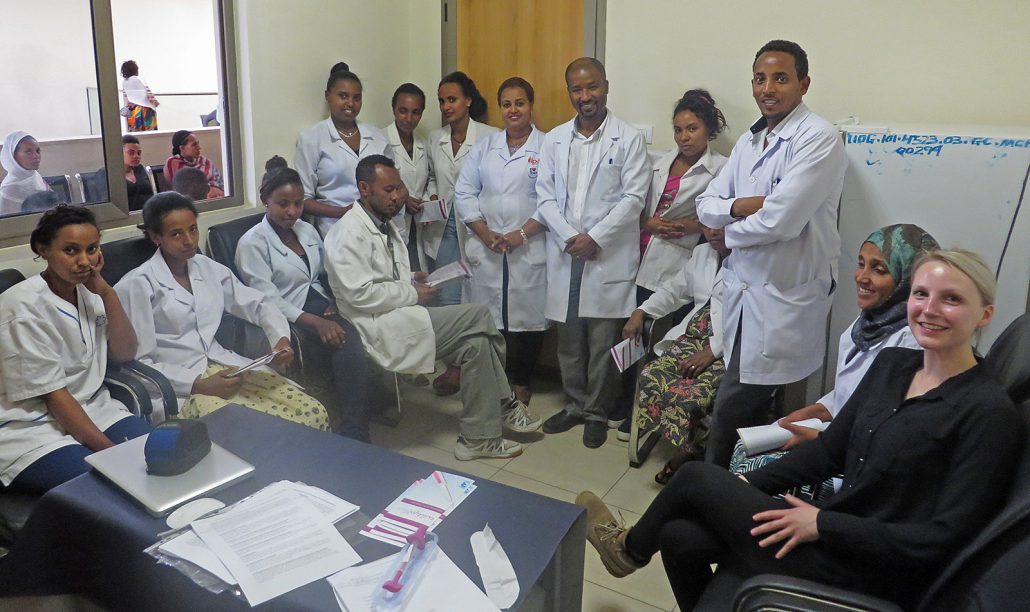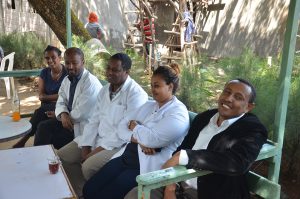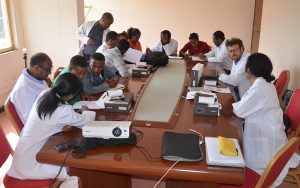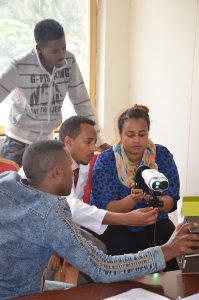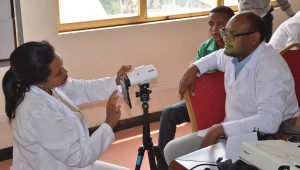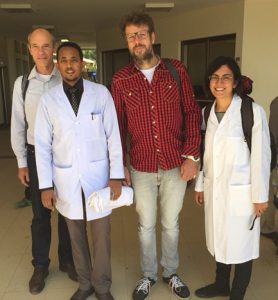Summary
- At least 80 per cent of women will contract HPV in their lifetime.
- 85 per cent who develop cancer die in developing countries.
- Taxing broadband and IT accessories such as smart phones is increasingly becoming counterproductive.
- There is mounting evidence that IT improves the lives of people and thereby would lead to the achievement of the SDGs.
Cervical cancer is the number one cause of death among Kenyan women. According to the World Health Organisation’s (WHO) 2016 Factsheet titled, Human Papillomavirus (HPV) and Cervical Cancer, most cervical cancers are caused by HPV.
At least 80 per cent of women will contract HPV in their lifetime. Of those who develop cancer, 85 per cent will die in developing countries. Unlike advanced countries that have well-established population-wide cervical cancer early detection programmes, developing countries lack the necessary infrastructure due to limited resources.
However, information technology (IT), has now brought new hope to significantly accelerate and simplify the screening approaches in less affluent and more remote parts of the world.
Collaboration between SAP’s Design and Co-Innovation Centre, Heidelberg University Hospital in Germany and the Moi Teaching and Referral Hospital, developed a digitised screening solution as part of the Emerging Technologies in Cervical Cancer Screening (ETiCCS) project in Eldoret.
It is a process that begins at a local clinic, followed by data being codified before it is uploaded into the cloud. The project started with a series of ‘Design Thinking’ workshops at the AppHaus Heidelberg (Germany) to optimize the cumbersome manual and paper-based process. A mobile solution connected to the cloud that also runs offline if no Internet is available, was the natural outcome of these workshops.
It connects the silos in the end-to-end screening process – from study recruitment, to data collection, to examination to remote data access to track the study’s progress from Kenya and Germany.
This was one of a kind solution, which African Media Agency reported early this month as having won an award in 2016 for improving lives according to user-centred design principles.
The next step for ETiCCS, SAP Business Trends, says, “is to bring the solution closer to patients by eliminating the need for women to travel long hours to a health centre. The project plans to offer a self-sampling test in larger, more rural areas with an ultimate goal to screen eligible women across the entire country. The project also envisions the adoption of smartphones to further simplify the process and provide full mobility.”
The process would be better if the internet was accessible and affordable in rural Kenya. It is no longer a secret that improving the lives of African people requires improved universal broadband infrastructure that is affordable, flexible policy and regulatory environment.
Taxing broadband and IT accessories such as smart phones is increasingly becoming counterproductive when new technologies like Internet of Things (IoT) and Big Data analytics are promising to comprehensively assist developing countries to leapfrog decades of dependence and backwardness.
It is possible that in the coming days the motivation from ETiCCS and collaboration with other cancer studies, we can build predictive models that would provide an even more robust solution to humanity.
There is need to break other national silos in research to bring together findings from other studies.
For example, a recent study by researchers from Kenya Medical Research Institute (Kemri), Britain’s Queen Mary University and Oxford University came up with striking conclusions linking the occurrence of cancer (including cervical cancer) in Nairobi to the tribal origin of afflicted people.
With such knowledge, it is therefore possible to develop some predictive model to target those whose infections are most likely to lead to cancer and provide targeted awareness programmes. More importantly, the studies could point to new unexplored areas that could lead to an eventual cure for cancer.
The Nairobi study could very well suggest that environment if not genetics plays in some way into the causes of cancer.
If new research points elsewhere then WHO’s suggestion of risk factors for HPV persistence and development of cervical cancer may put into question. These risk factors include early first sexual intercourse, multiple sexual partners, tobacco use and immunity suppression.
There is mounting evidence that IT improves the lives of people and thereby would lead to the achievement of the SDGs.
Developing countries like Kenya, therefore, must strive towards universal connectivity that enables access to ICTs. IT as demonstrated in the ETiCCS case has the power of doing that which we couldn’t do before. There is a greater need now than ever before to collaborate, leverage IT, build capacity and change the lives of people.
The writer is an associate professor at the University of Nairobi’s School of Business
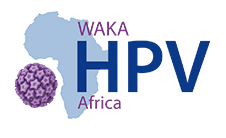 On March 2nd 2017 WAKA is organising a satellite symposium “WAKA HPV NETWORK: HPV IN SUB-SAHARAN AFRICA” at the IPVC 2017 where ETiCCS and SAP will present their IT-based approach to cervical cancer screening in resource-limited regions. The meeting will take place in Meeting Room 1.43 at 3:00 – 4:30 pm.
On March 2nd 2017 WAKA is organising a satellite symposium “WAKA HPV NETWORK: HPV IN SUB-SAHARAN AFRICA” at the IPVC 2017 where ETiCCS and SAP will present their IT-based approach to cervical cancer screening in resource-limited regions. The meeting will take place in Meeting Room 1.43 at 3:00 – 4:30 pm.
